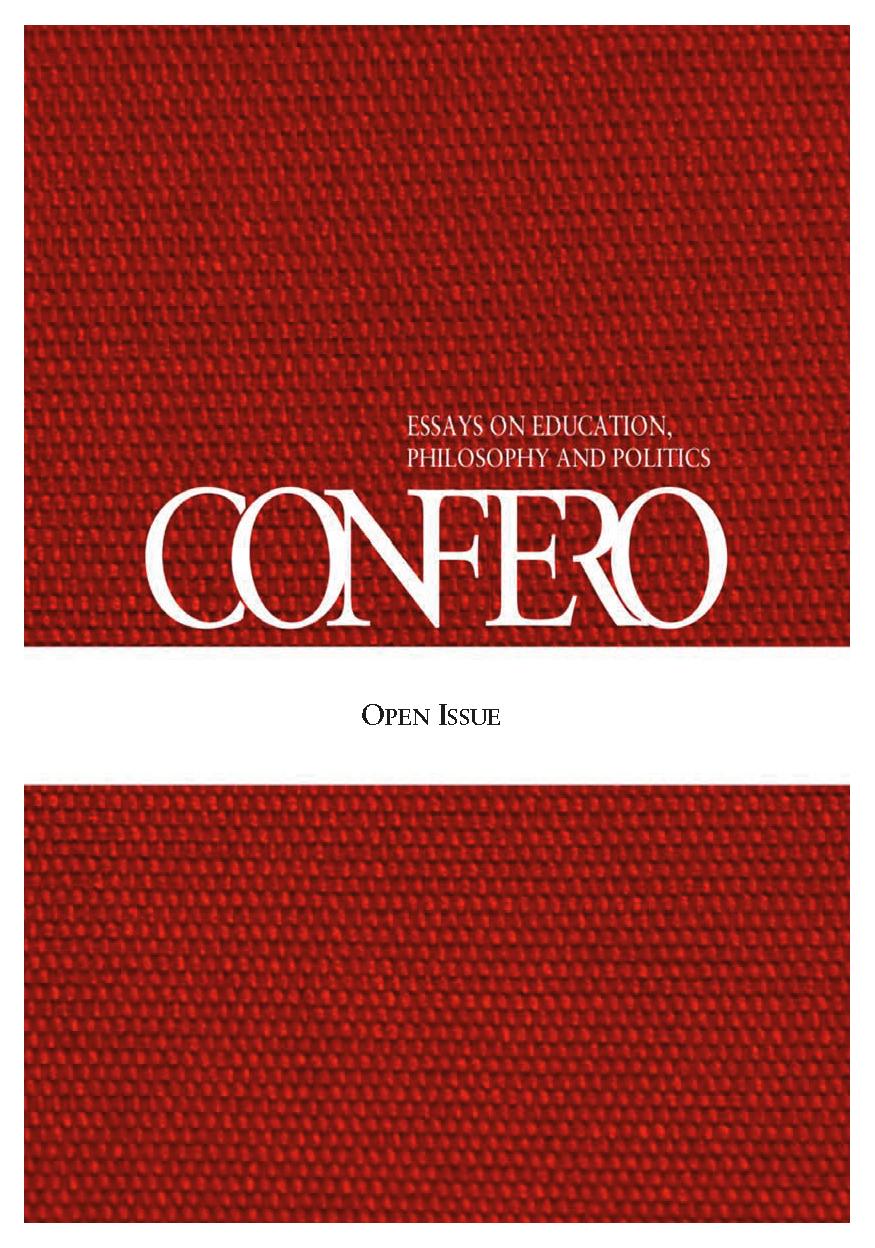Alienation and Precarious Contract Academic Staff in the Age of Neoliberalism
DOI:
https://doi.org/10.3384/confero.2001-4562.141007aAbstract
Not Available.
References
Bauder, Harald. “The Segmentation of Academic Labour: A Canadian Example.” Acme Journal 4 (2006): 228–239.
Cannally, Culum. “Intervention – Where’s our agency? The role of grading in the neoliberalization of public universities.” Antipode 30 March. http://antipodefoundation.org/2012/03/30/intervention-wheres-our-agency-the-role-of-grading-in-the-neoliberalization-of-public-universities/ [Retrieved 22 Aug 2013]
Castoriadis, Cornelius. The Imaginary Institution of Society. Trans. Kathleen Blamey. Cambridge: The MIT Press, 1987.
Coalition on the Academic Workforce. “A Portrait of Part-Time Faculty Members.” http://www.academicworkforce.org/CAW_portrait_2012.pdf [Retrieved 15 September 2013]
Debord, Guy. Society of the Spectacle. Detroit: Black & Red, 2000.
Deleuze and Guattari. A Thousand Plateaus. Trans. Brian Massumi. Minnesota: University of Minneapolis Press, 1987.
Dobbie, D. and I. Robinson. “Reorganizing Higher Education in the United States and Canada: The Erosion of Tenure and the Unionization of Contingent Faculty” Labour Studies Journal, 33.1 (2008): 117–140. doi: 10.1177/0160449X07301241
Fanelli, Carlo, and Mark P. Thomas. “Austerity, Competitiveness and Neoliberalism Redux.” Socialist Studies 7.1/2 (2011): 141–170.
Farr, M. “For teaching-only faculty, a controversial role.” University Affairs 3 Nov. 2008 http://www.universityaffairs.ca/those-who-can-teach.aspx [Retrieved 12 September 2013]
Gill, Rosalind. “Breaking the silence: The hidden injuries of neo-liberal academia.” Secrecy and Silence in the Research Process: Feminist Reflections. Eds. R. Flood and R. Gill. London: Routledge, 2009. 228–244.
Gullì, Bruno. “Knowledge Production and the Superexploitation of Contingent Academic Labor.” Workplace: A Journal for Academic Labor 16 (2009): 1–30.
Huberman-Arnold, Diane. “The Ups and Downs of Two Faculty Unions at One University.” CAUT/ACPPU Bulletin 46.1 (1999) http://www.cautbulletin.ca/en_article.asp?articleid=2185 [Retrieved 30 August 2013]
Marx, Karl. Capital vol. 1. Ed. Frederick Engels. Trans. Samuel Moore and Edward Aveling. New York: International Publishers, 1967.
Muzzin, L. “Equity, Ethics, Academic Freedom and the Employment of Contingent Academics. “Academic Matters, May 2009, pp. 19–22.
Peck, Jamie, and Adam Tickell. “Neoliberalizing Space.” Antipode 34.3 (2002): 380–404. doi: 10.1111/1467-8330.00247
Rajagopal, I. Hidden Academics: Contract Faculty in Canadian Universities. Toronto: University of Toronto Press, 2002.
Standing, G. The Precariat: The New Dangerous Class. London: Bloomsbury, 2011.
Tenbrinke, Karat. “Future hiring, reliance on contract staff and data gaps.” OCUFA Jul. 2013. http://ocufa.on.ca/members-area/executive/executive-binder/future-faculty-hiring-reliance-on-contract-staff-and-data-gaps/#sthash.6wQdbBuz.dpuf [Retrieved 5 September 2013].
Thompson, P. and D. McHugh. Work Organisations: A Critical Introduction. Basingstoke: Palgrave, 2002.
Tuckman B. H, and H.P. Tuckman. “Who Are the Part-Timers and What Are Colleges Doing for Them?” Current Issues in Higher Education 4 (1981): 4–8.
Willmott, Hugh. “Managing the Academics: Commodification and Control in the Development of University Education in the U.K.” Human Relations 48.9 (1995): 993–1097. doi: 10.1177/001872679504800902
Wilson, Tom. “The Proletarianisation of Academic Labour.” Industrial Relations Journal 22.4 (1991): 250–262. doi: 10.1111/j.1468-2338.1991.tb00642.x
Ylijoki, Oili-Helena.“Future orientations in episodic labour: Short-term academics as a case in point.” Time and Society 19.3 (2010): 365–386. doi: 10.1177/0961463X10356220
Downloads
Published
Issue
Section
License
Copyright (c) 2014 Kane Xavier Faucher

This work is licensed under a Creative Commons Attribution 4.0 International License.
As Confero is an open access journal, this means that anyone who can access the Internet can freely download and read the journal. There are no commercial interests for Linköping University Electronic Press or Confero in publishing the journal.
The core idea of open access is that copyright remains with the author(s). However, we publish with the agreement of the author that if she or he decides later to publish the article elsewhere, that the publisher will be notified, prior to any acceptance, that the article has already been published by Confero.
When publishing with Confero, it is with the agreement of the author that if they make their article available elsewhere on the internet (for example, on their own website or an institutional website), that they will do so by making a link to the article as published in Confero using the Digital Object Identifier (DOI) number of the article and acknowledge in the text of the site that the article has been previously published in Confero.
As evident by the markers on our homepage, Confero falls under the Creative Commons licence abbreviated BY. This means that we allow others to use, spread and elaborate on the published articles, as long as they acknowledge who published it and where it was originally published.



